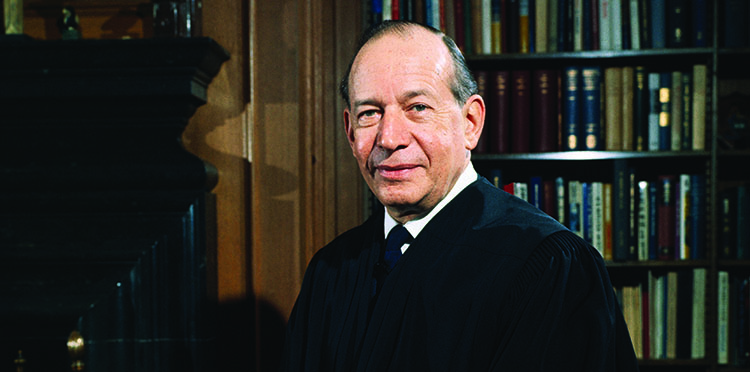May 14, 1969: The Spectacular Fall of Abe Fortas

U.S. Supreme Court Justice Abe Fortas. Photo by Bettmann/Contributor via Getty Images.
By the time Lyndon Johnson named him to the U.S. Supreme Court in 1965, Abe Fortas was regarded—and at times reviled—as one of the best lawyers in Washington. Having worked in a range of posts across the federal government, he knew where the secrets were buried and who buried them.
When Johnson, perceiving the need for judicial support for his Great Society programs, induced Justice Arthur Goldberg to resign to become ambassador to the United Nations, there was scant surprise in Washington that Fortas was nominated.
Fortas and Johnson had become close in Johnson’s early days as a Texas congressman. In 1948, it had been Fortas who forged the legal strategy that propelled Johnson to the Senate—despite credible evidence that his 87-vote victory in the Democratic primary had been tainted by voter fraud. And when Air Force One touched down at Andrews Air Force Base in the hours after the John F. Kennedy assassination in Dallas, Fortas was there to meet the newly sworn-in president.
Although Fortas regarded himself as a Southerner in a city dominated by southern Democrats, his nomination was not met with universal regard. He was born in Memphis, Tennessee, in 1910 to Jewish immigrant parents. His father was a cabinetmaker; his mother, a homemaker. He thrived in school, attended a small Presbyterian college and later entered Yale Law School as one of its youngest students. Upon graduating near the top of his class, Fortas stayed at Yale to teach at the urging of one of his professors, William O. Douglas.
But Fortas also began commuting to a variety of jobs in Washington, where he built a stellar resumé at posts in the gearworks of the emerging New Deal: He worked for the Agricultural Adjustment Administration, the Securities and Exchange Commission, the Public Works Administration’s Bituminous Coal Division, and he eventually became undersecretary of the interior.
After World War II, Fortas and two government lawyers, Thurman Arnold and Paul Porter, founded a firm designed to help businesses negotiate the regulatory structure they had helped create. Fortas quickly became a go-to adviser in the blossoming postwar practice of regulatory law.
Although Fortas was unabashed in his support of business interests in Washington, his work for the American Civil Liberties Union drew sneers from Southern Democrats. He defended targets of the McCarthy-era hearings and spearheaded important civil liberties cases. His argument before the U.S. Supreme Court in Gideon v. Wainwright famously secured the constitutional right to counsel for not just capital crimes.
Despite vague accusations of communist ties, Fortas was confirmed in the Senate, becoming a vigorous advocate for Johnson’s interests on the bench. And in June 1968, with the announced retirement of Chief Justice Earl Warren, the extent of that advocacy became known.
Johnson nominated Fortas for chief justice, and with the prospect of a Richard Nixon presidency looming months later, Southern senators from both parties began resisting pressure from Johnson for a fast-tracked confirmation. And in the subsequent Fortas vetting, opponents found what they needed to deny him the post.
First, there was a $15,000 payment to Fortas for a summer teaching post. Not only was this considered an extraordinary supplement to his $39,500 government salary, the post was funded by former law firm clients. More significantly for a sitting justice, Fortas revealed he had never stopped advising Johnson—attending White House staff meetings, advising on judicial nominations and reporting on private deliberations by the court.
Faced with a Senate filibuster, Fortas asked Johnson to withdraw his name. He returned to the court only to face another scandal when Life magazine revealed he had been receiving regular payments from Louis Wolfson, a former Wall Street client convicted of fraud. Under their agreement, Fortas was to receive $20,000 a year for life. He had returned the money, but only after Wolfson was indicted.
With his reputation shattered and facing calls for his impeachment, Fortas was urged by Earl Warren to resign. He submitted his resignation to President Nixon on May 14, 1969.



